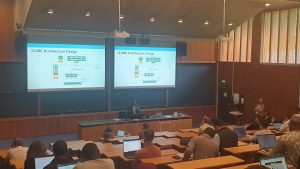
Our team also engages in health informatics research, whereby we study various techniques to obtain knowledge and insights on numerous themes, from the innovation process in HIS to the development of EMRS to the integration and interoperability of HISs. We have specialists in the field leading our research paths with the collaboration of PG students, researchers, and other stakeholders in the business. Our research on this topic has had major theoretical and practical ramifications in the development and adoption of differential health systems and innovation in the health sector in Tanzania and beyond. This gives healthcare professionals and policymakers actionable knowledge to improve service delivery.
Epidemiological Studies
Research in epidemiology helps track and predict the spread of diseases. The lab contributes by producing data models and dashboards that track health trends, enabling prompt responses to health crises like pandemics or epidemics.
Maternal and Child Health
Studies aim to enhance the quality of care for women and children by studying health indicators and detecting gaps in service delivery, such as antenatal care, vaccines, and nutrition programs.
Health Systems Strengthening
The lab conducts research to optimize the performance of health systems by researching resource allocation, labor management, and the use of technology to improve service delivery.
Health Data Integration
UDSM DHIS2 Lab specializes in integrating health data from multiple sources to provide a uniform framework that promotes improved planning, monitoring, and evaluation of health programs.
Community Health Interventions
Research is focused on analyzing the impact of community-based health programs and interventions, such as campaigns on disease prevention, sanitation, and public health awareness.
Non-Communicable Diseases (NCDs)
The lab examines solutions for addressing NCDs, including diabetes, hypertension, and cancer, through data-driven policy recommendations and prevention programs.
Global Health Partnerships
Collaborating with international organizations and stakeholders, the lab contributes to research that aligns with global health priorities, such as achieving the Sustainable Development Goals (SDGs).


